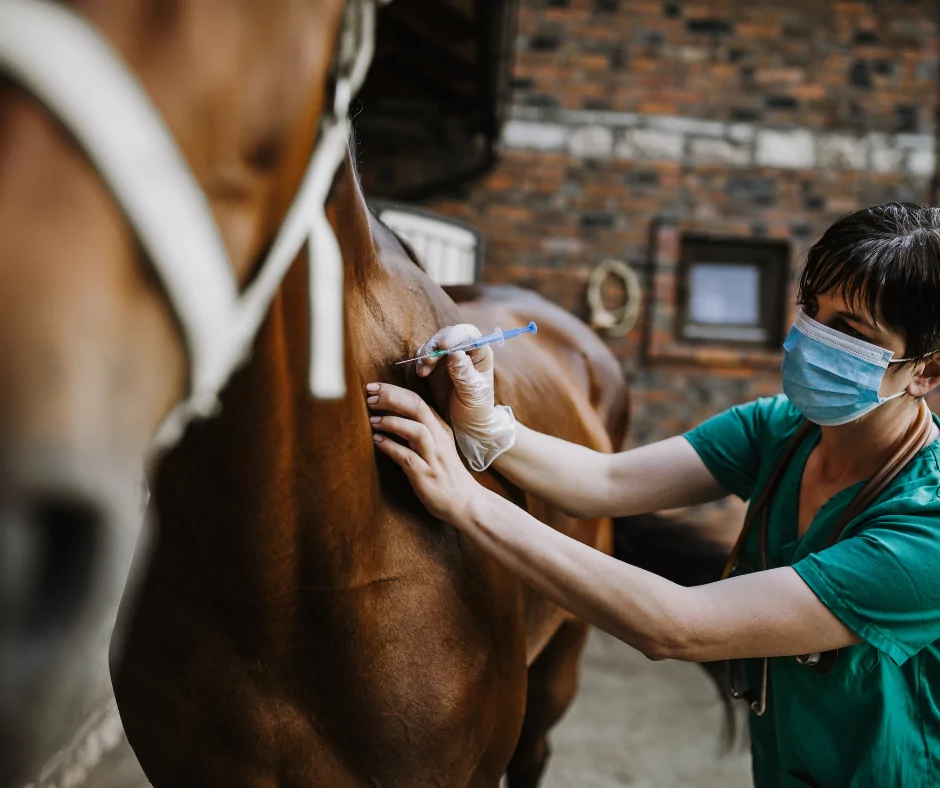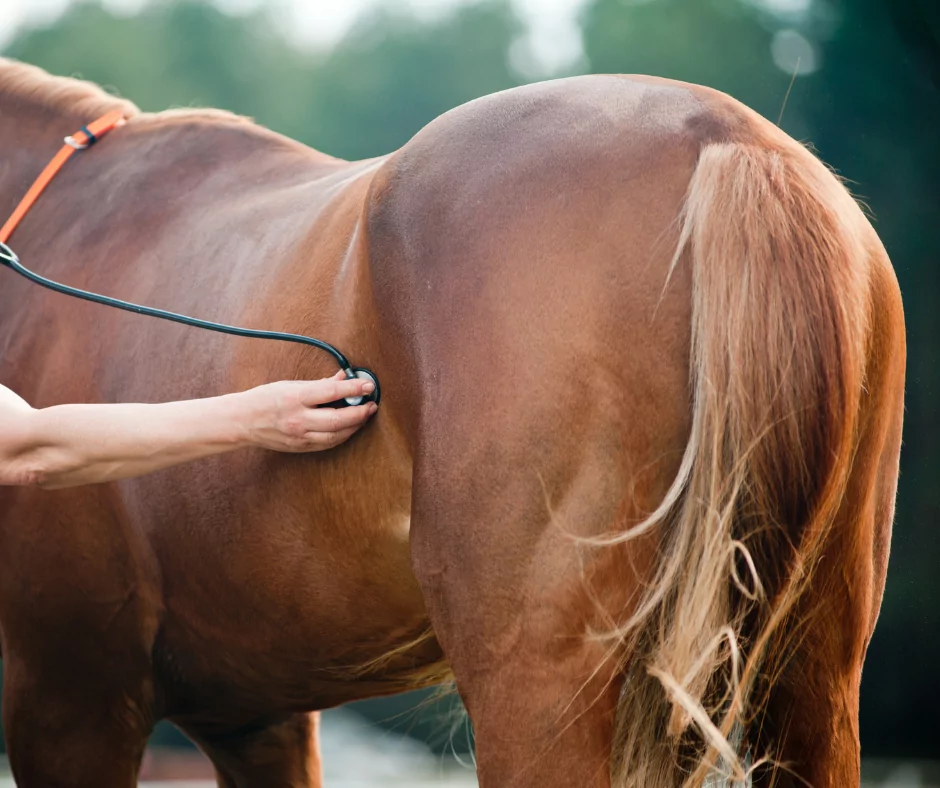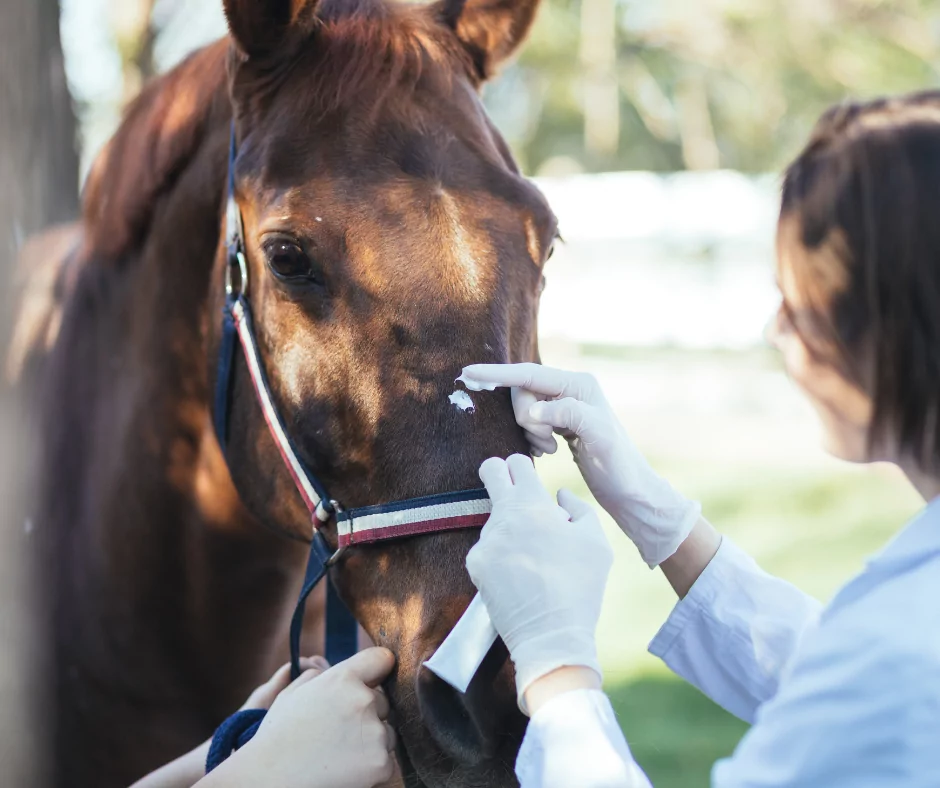What is an Equine Veterinarian?
An equine veterinarian is a doctor of veterinary medicine who provides medical care to horses. Their responsibilities can range from performing wellness exams, treating injuries, to specializing in certain areas of this field. Equine veterinarians may only treat horses, but their career opportunities are vast.

How Do You Become an Equine Veterinarian?
Your journey to becoming an equine veterinarian will involve extensive training but must stem from an overall passion for the animal. Most equine vets grow up with a passion for horses, and a strong will to succeed. Once you have these important tools, you can follow the path to DVM.
Education requirements: To become an equine veterinarian, you must first complete your doctorate of veterinary medicine. This will require you to complete prerequisite courses, four years of veterinary courses, and possible additional education after graduating depending on your specialty.
Internship: An internship gives aspiring veterinarians a chance to gain experience and education in a clinical setting. This is considered the first step in your clinical setting training and helps to prepare you for your future career. You will most often start an internship after receiving your DVM degree, but it is sometimes offered in conjunction with working toward your DVM.
Residency: After completing an internship in a clinical setting, you then move on to your residency training. This is more specific training, more than often in the specialty of your choice. Your residency can be completed in the step to move on to another setting, or a possible “interview” for a permanent spot at your residency site.
Licensing & Certifications: To be an equine veterinarian, you must earn your doctorate of veterinary medicine. Once you have completed your degree and your additional career training, you must follow up with continuing education each year to keep your license to practice validly. Each amount of continuing education needed will vary depending on your specialty.

Where Can You Work as an Equine Veterinarian?
With billions of horses in this world, your career possibilities are vast. After completing your DVM, you can begin to explore your options! Some of your options include:
General Practice
General practice is a popular choice among equine veterinarians. This means you work in a multi-doctor practice or a solo practice. Your daily tasks involve treating the general horse population and possibly other large animals if a practice sees all livestock.
Sports horses
Some equine vets make the choice to specialize in work with sports horses. This means you focus on the treatment of sports and performance horses, and the care required for success in their sport. A career in sports medicine often requires specialty training.

Equine reproduction
A career in equine reproduction involves the care and reproduction of horses and the process of reproduction. Since this option is vast, your patients can range from sports horses to family horses. A career in equine reproduction often requires specialty training.
Surgeons
Equine surgery is possibly one of the most challenging options in this career field. Surgeons can specialize in different areas, but no matter your surgical specialty, intense training is required.
How Much Does an Equine Veterinarian Earn?
Since there are multiple career options in equine medicine, an equine veterinarian’s salary can vary. The medium wage of an equine veterinarian is about $90,000. While some equine vets are close in earning to this salary, some equine specialists are making up to $300,000 a year. Just like any other field in veterinary medicine, your salary will depend on your specialty and training.

Summary
If you have a love for horses, a career as an equine veterinarian can be incredibly rewarding. If you put in the work necessary to complete your degree, some incredible opportunities await you!
If you enjoyed this article, take a look at What are the recognized veterinary specialists? on our blog, and learn about all of your veterinary options!
